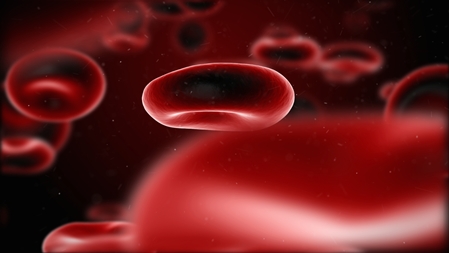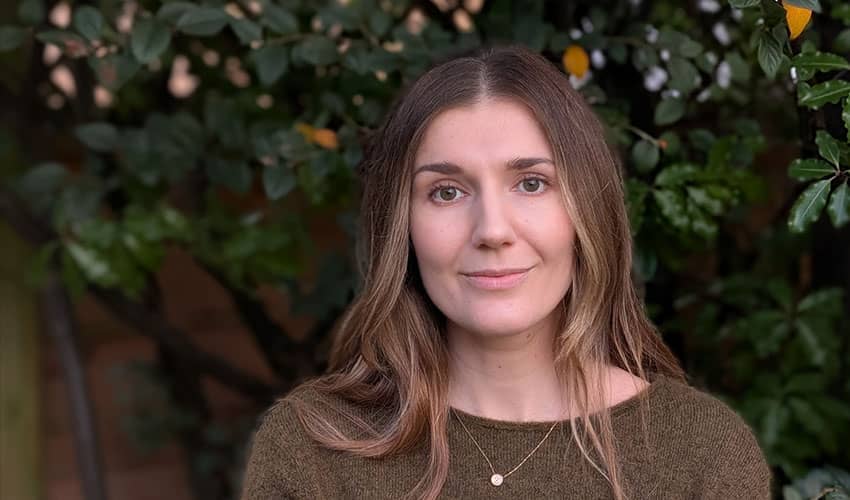Male blood donors 'preferred' as plasma from UK women is discarded

Julie Kent and Anne-Maree Farrell, Risky Bodies in the Plasma Bioeconomy: A Feminist Analysis.
Access the Free Full Text, Free Full (PDF), or Video-abstract.
The UK policy of discarding female blood plasma without first informing women donors is discriminatory, according to Professor Julie Kent from UWE Bristol. In her research she raises questions about the ethics of blood donation since 2003 when a policy of 'male donor preference' was adopted by the UK National Blood Service.
The policy was based on the view that data relating to the incidence of Transfusion-Related Acute Lung Injury (TRALI) was linked to transfusion with women's plasma. It is possible that antibodies produced during pregnancy may be a trigger for some transfusion related reactions though the evidence for this is uncertain. UK policy makers decided therefore that to avoid this potential risk all women's plasma would be discarded regardless of whether or not they had been pregnant or had produced harmful antibodies. In contrast male plasma is presumed to be safer.
Professor Kent said, “Since 2003, all women, whether they had a history of pregnancy or not, were deemed unfit or undesirable for plasma donation. Since 2010, all UK Fresh Frozen Plasma has been produced from male plasma, while female plasma, once separated from red blood cells at the first stage of processing, is discarded and sent for incineration.
“Although all female plasma is discarded at the first stage of processing, the UK blood service does not inform women donors that this will take place. This presumes that some women would not wish to donate blood if they knew this, and that women had no entitlement to such information.”
Professor Kent's paper, co-authored by Anne-Maree Farrell, is entitled Risky Bodies in the Plasma Bioeconomy: A Feminist Analysis and has just been published by Body & Society.
The paper focusses on current policy and practice in the UK, and involved visits to a major blood processing facility and a plasma products manufacturer, and interviews with transfusion specialists and representatives of patients groups. It is part of a larger ESRC funded project on 'Risk, safety and consent in the UK blood services'.
Professor Kent continues, “The paper also looked at whether the potential risks of TRALI had been prioritised over potential benefits of using female plasma, such as claims that cardiac patients infused with female plasma had better outcomes.
“We also looked at the risks for women in the UK with the blood group Rhesus D negative (RhD) who are routinely given a drug called Anti D immunoglobulin (Anti-D Ig) – produced mainly from male plasma, and attracting a market premium - that reduces the incidence of haemolytic disease of the foetus and new-born (HFDN) if they are the same blood group as their mother. As it has been possible since 1997 to establish the blood group of the foetus from a maternal blood sample, one third of these women – those who are carrying foetuses with a different blood group – are being given the treatment unnecessarily.
“Our view is that the UK male preference policy for plasma is discriminatory, regarding all women as risky plasma donors regardless of their age, reproductive history or antibody status. The policy was implemented without public discussion or consultations, and there is a continuing lack of public information about the policy. It also raises questions about the ethics of donation and the information given to women about becoming blood donors.
“Men and women are viewed as very different kinds of donors within transfusion science. Women are not routinely screened or tested for their antibody status, contrasting with other Western countries which redirects rather than discards female plasma, or screens women donors for their pregnancy history.”
Related news

16 February 2026
UWE Bristol researchers awarded grant to explore impact of asset recovery on offenders
UWE Bristol academics have been awarded funding to explore of the impact of asset recovery on deterring offender behaviour and disrupting crime networks.

10 February 2026
Work by UWE Bristol lecturer features in Government’s National Cancer Plan
Work by a UWE Bristol academic has been included in the Government’s National Cancer Plan.

23 January 2026
On-demand minibus services beneficial in rural areas but face financial challenges, trials suggest
Trials of ‘demand responsive transport’ minibus services boosted connectivity for people in rural and suburban areas, according to a new report produced by UWE Bristol researchers.

18 December 2025
UWE Bristol professor appointed National Institute for Health and Care Excellence CEO
Jonathan Benger CBE, Professor of Emergency Care at UWE Bristol, has been appointed as the new chief executive officer of the National Institute for Health and Care Excellence (NICE).

17 December 2025
Findings revealed from first UK study into experiences of mothers who are survivors of rape pregnancy
UWE Bristol academics have revealed the findings of the first UK-based study of the experiences of mothers who are survivors of rape pregnancy.

11 December 2025
Social media influencer work is far more demanding than it looks, research finds
A study exploring the mental health impacts of social media influencer work has revealed that life online is far more demanding than it appears.

25 November 2025
UWE Bristol experts join film Q&A exploring music and melodrama
Academics will take part in the Cary Comes Home Festival, with a post-screening Q&A exploring music, melodrama and emotional storytelling in classic cinema.

17 November 2025
Urgent reform needed to support ambulance-delivered end of life care, study finds
More than three quarters (78 per cent) of paramedics sometimes fear doing the wrong thing when caring for people in the last year of life, new research has found.

13 November 2025
Bristol’s screen industry experiences “boom-and-bust cycle” after post-pandemic recovery, new research from UWE Bristol finds
New research from UWE Bristol provides detailed insight into Bristol's screen sector.

13 November 2025
New AI research to revolutionise animal welfare
A UWE Bristol research project will combine behavioural science and AI to create technology that understands not only what animals do, but how they feel.

10 November 2025
Lessons from Low Traffic Neighbourhoods will drive better public engagement, study finds
Lessons from Low Traffic Neighbourhoods have informed a new toolkit to improve engagement with the public on challenging local street issues.

06 November 2025
First-of-its-kind study aims to help more people spend their final days at home
A new study will explore how architectural design could support end-of-life care in domestic settings.






